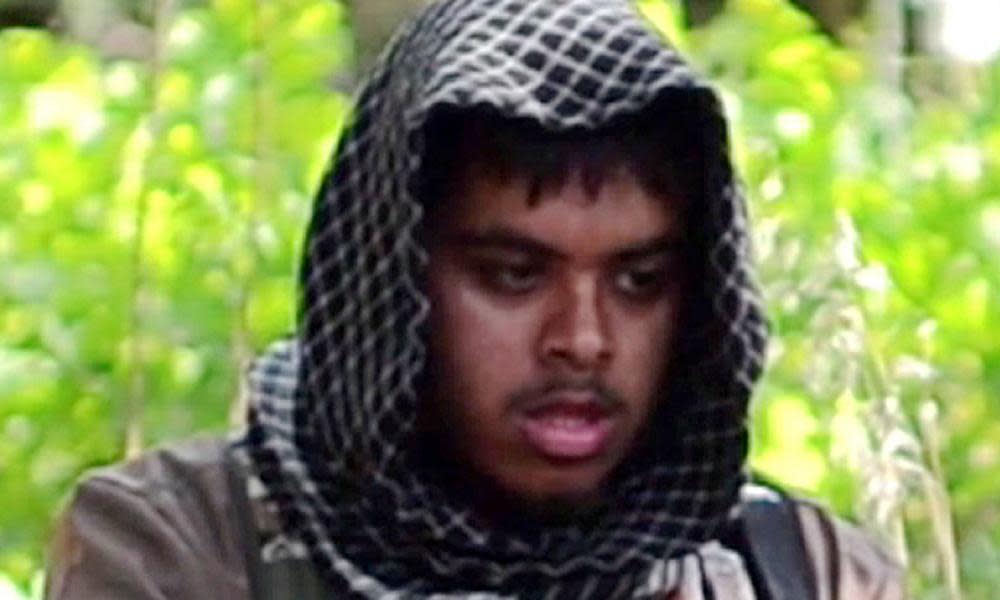Briton killed in drone strike on Isis 'posed serious threat to UK'

Reyaad Khan, a British member of Islamic State killed in an RAF drone strike in Syria, posed a “very serious threat to the UK”, according to a long-delayed parliamentary committee report.
But the committee chairman expressed “profound” disappointment at the lack of access to ministerial decision-making material and to other primary evidence that made it impossible to conduct a complete investigation.
The inquiry began in 2015 over concerns about the legality of the attack and whether it had been necessary and proportionate. The attack was unprecedented, the first UK drone strike on a British terrorist target outside of military operations.
The Conservative chairman of the committee, Dominic Grieve QC, said that from 25 intelligence reports and two formal intelligence assessments it was clear Khan was a prolific recruiter and attack planner.
Expressing concern about the failure of Downing Street to allow access to crucial material, Grieve said: “This failure to provide what we consider to be relevant documents is profoundly disappointing. Oversight depends on primary evidence: the government should open up the ministerial decision-making process to scrutiny on matters of such seriousness.”
Khan, 21, who was the target of the RAF drone strike on 21 August 2015, travelled to Syria in November 2013 after becoming radicalised. Before that, he had been a straight-A student from the Riverside area of Cardiff who at one point harboured dreams of becoming Britain’s first Asian prime minister.
He featured in a prominent Isis video and was a frequent user of social media, boasting of murders and violent plans. Messages sent by him included: “Executed many prisoners yesterday”, and “Anyone want to sponsor my explosive belt? Gucci, give me a shout”. He posted images of bloody corpses, which Khan said belonged to a group whom he and other militants had captured and executed.
The intelligence committee report was sent to Downing Street in December but publication was delayed. Grieve said he would have challenged some of the redactions in the report, but was having to publish now because of the general election. A new committee will be formed after the election.
The heavily redacted report, UK Lethal Drone Strikes in Syria, concludes: “From the intelligence reports we have seen, we are in no doubt that Reyaad Khan posed a very serious threat to the UK. He orchestrated numerous plots to murder large numbers of UK citizens and those of our allies, as part of a wider terrorist group which considers itself at war with the west.”
The committee did not look at the legality but issues such as whether he posed a threat, whether a threat was imminent and whether the attack was proportionate.
The report says: “Without access to the ministerial submissions, we are not in a position to comment on the process by which ministers considered the question of imminence and how it might have been considered in relation to the decision to conduct a lethal strike.”
In spite of reservations over access to government material, the report concluded: “It is clear to us that Khan was orchestrating and inciting a significant number of attacks, some of which could have been launched within a short period of time.”
A Government spokesperson said: “Relevant departments and agencies co-operated fully with the ISC in its preparation. There will be a formal government response to the committee’s report, in line with the provisions of the Justice and Security Act 2013, in due course.”

 Yahoo News
Yahoo News 
